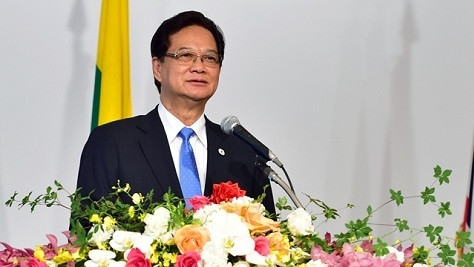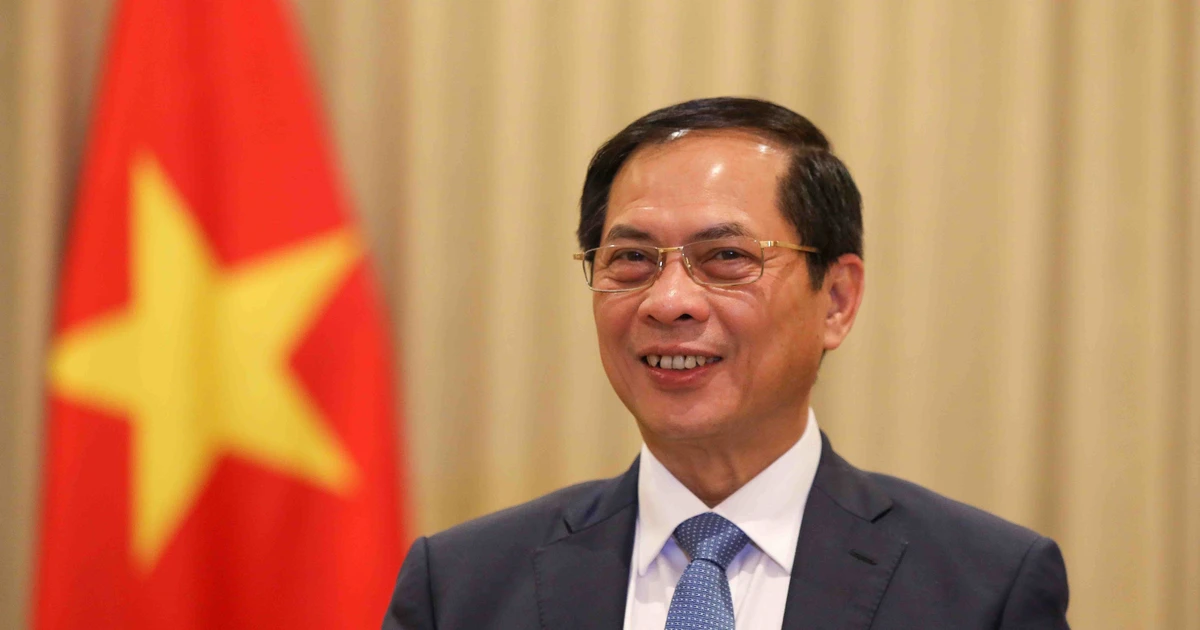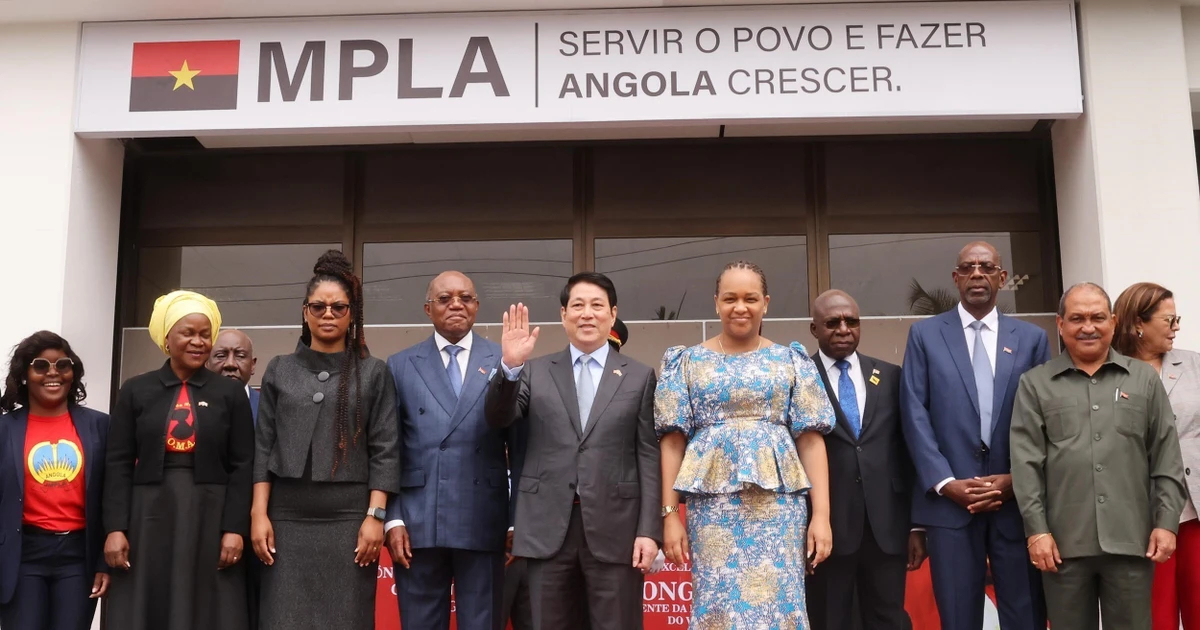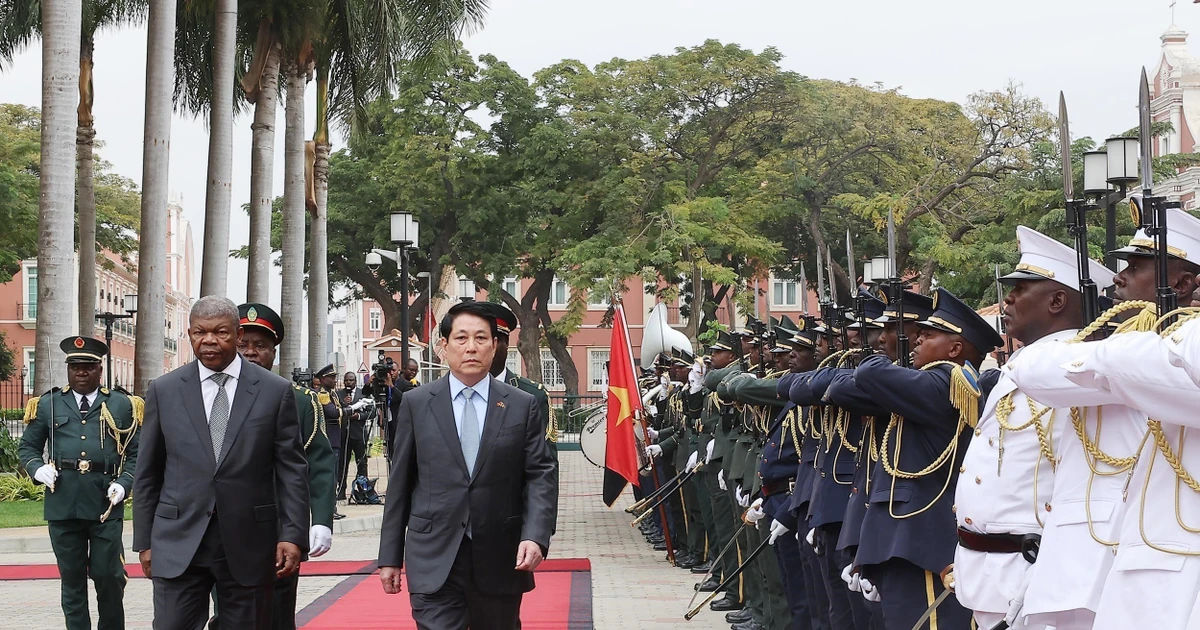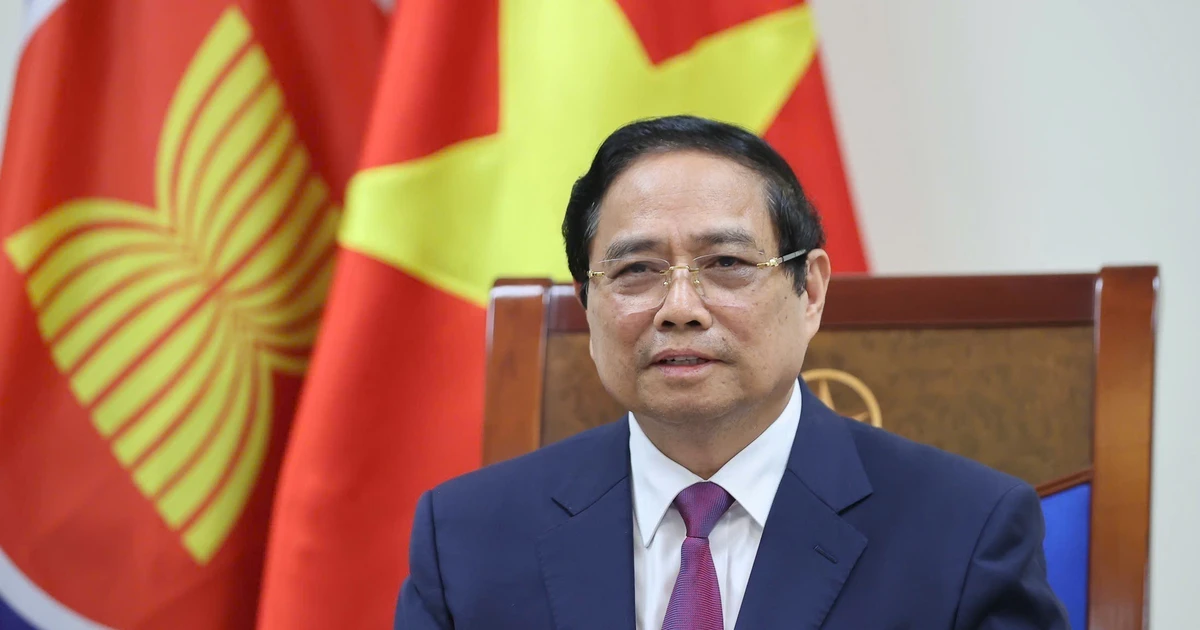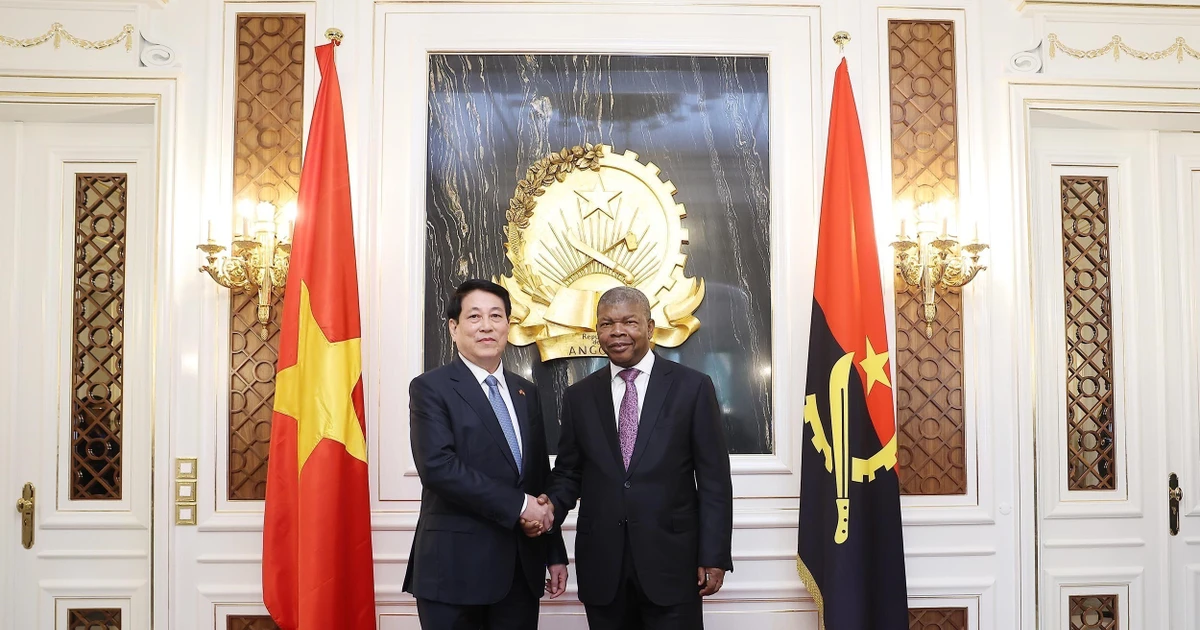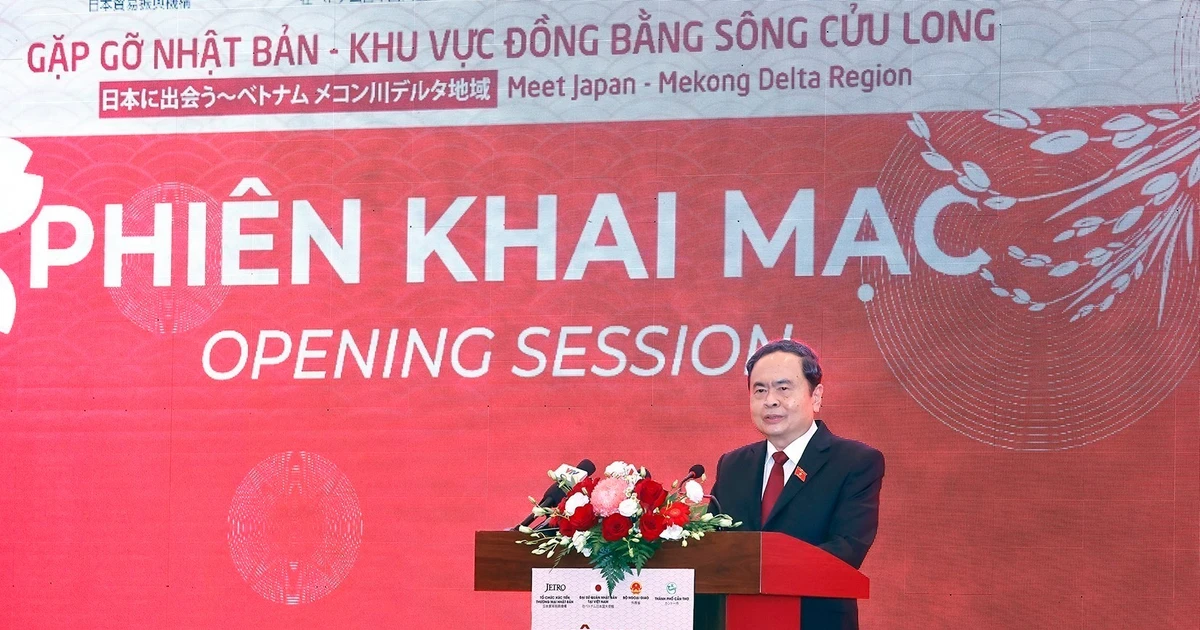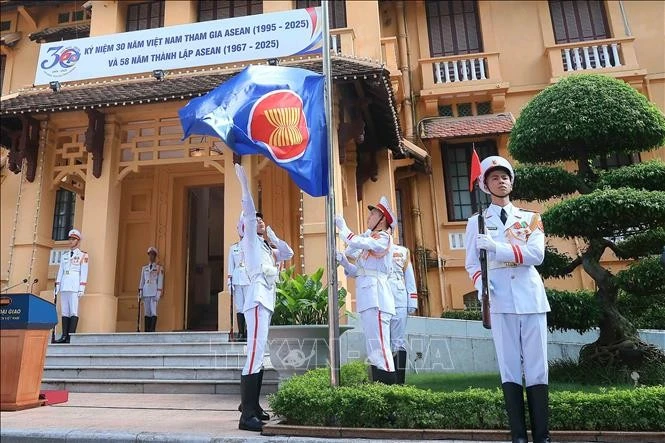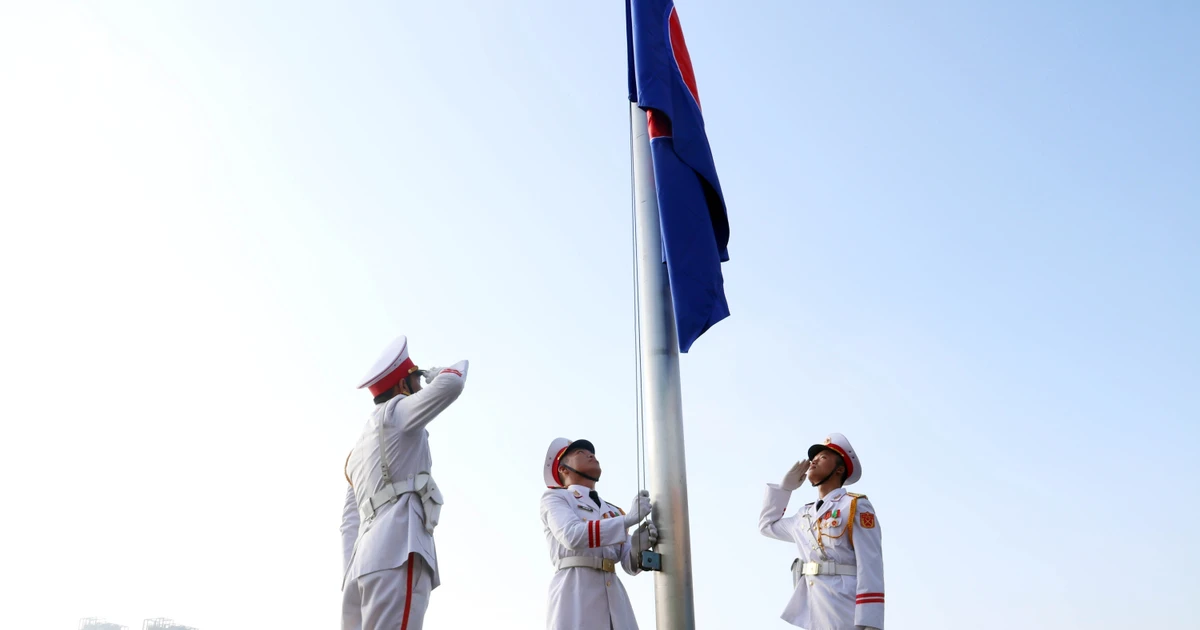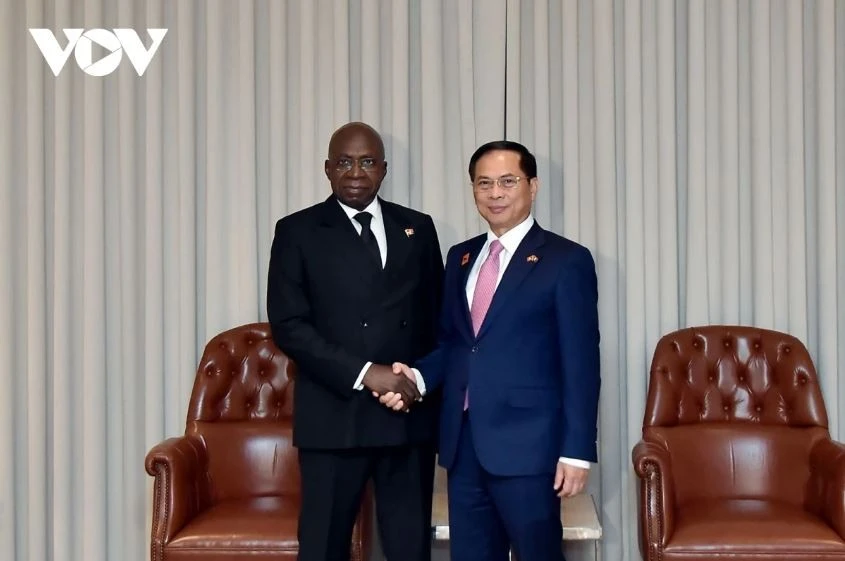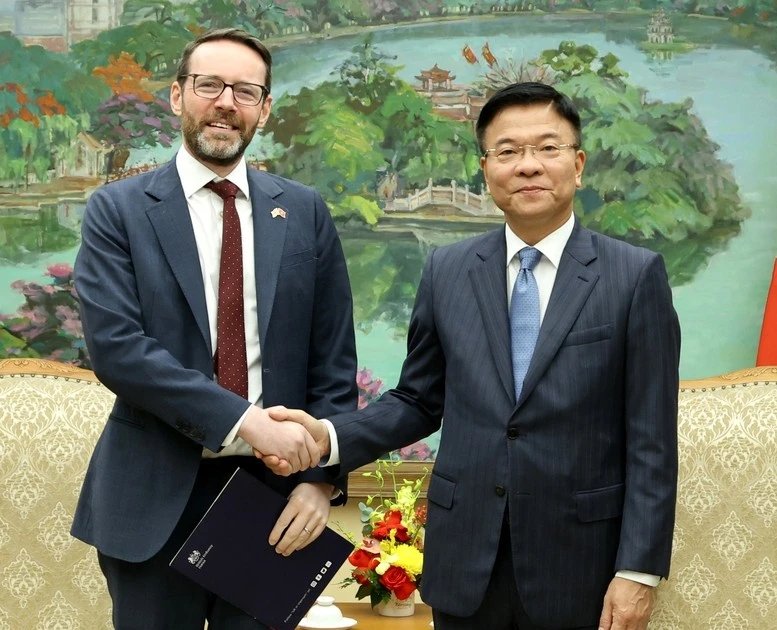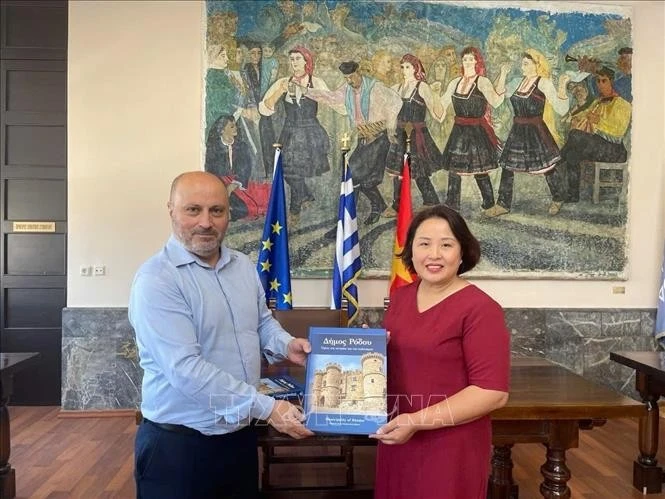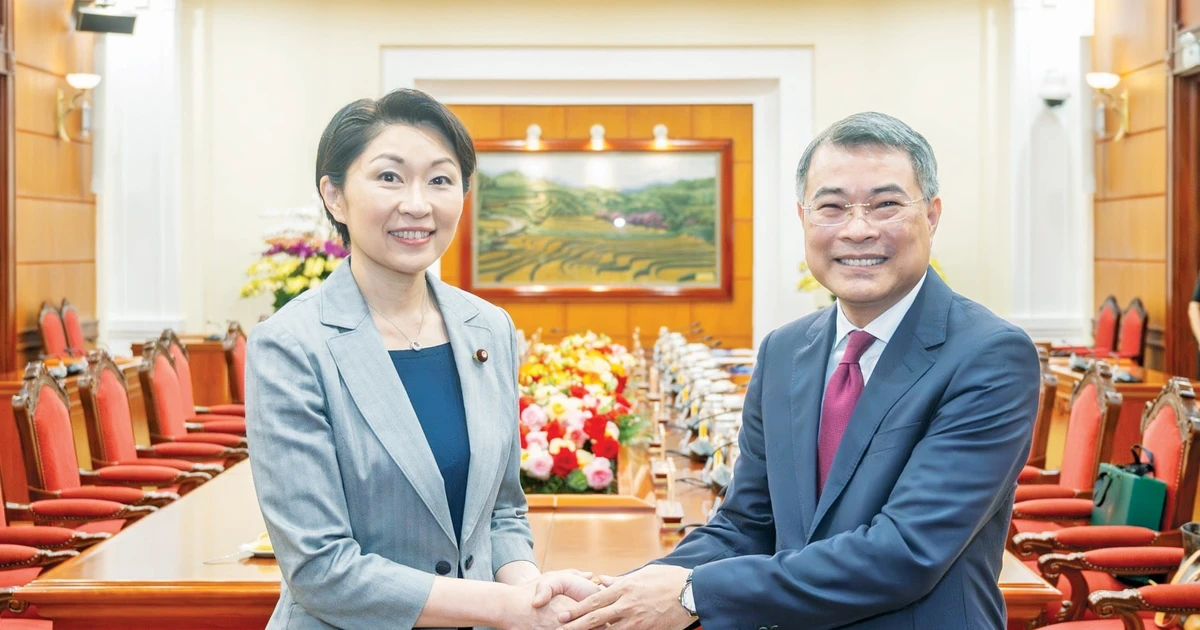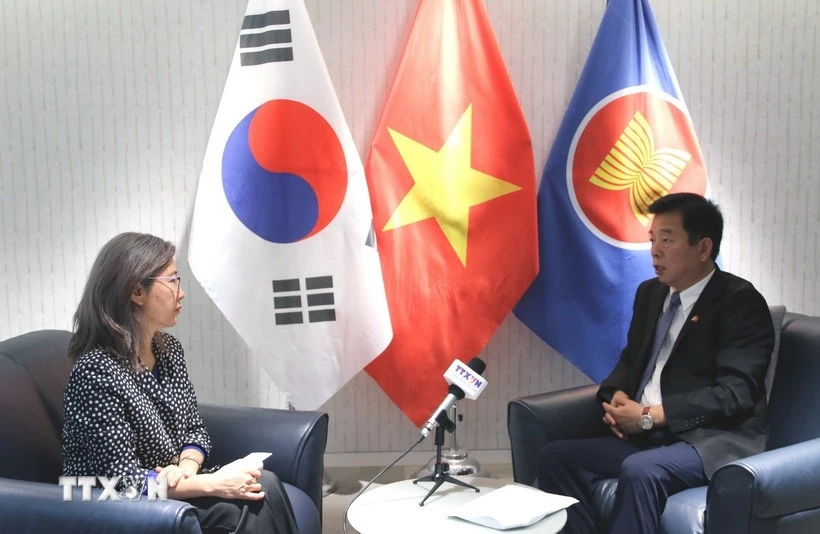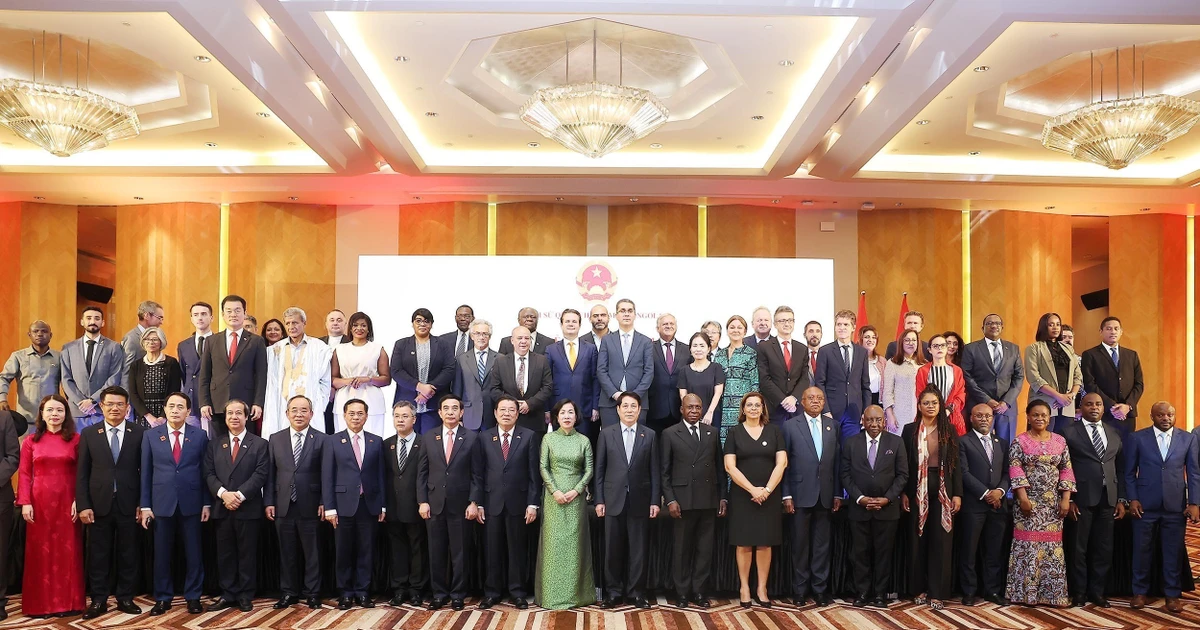The Mekong sub-region (MS), including Vietnam, Thailand, Laos Cambodia and Myanmar with a population of 230 million and a continuously increasing average income per capita, is currently the principal production and consumption venue of Japanese businesses. As many as 1,000 Japanese firms applied for membership of the Japanese Business Association in the region between 2012 and 2015. Japan's direct investment in the region hit US$6.8 billion in 2014.
In such a situation, the MJS took place at Akasaka Palace in Tokyo, attracting significant attention from the Governments and business communities of Japan and the Mekong sub-region countries. It aimed to create a breakthrough in promoting multi-faceted links, particularly in economics, trade and investment.
As expected by all sides, regional leaders adopted the Tokyo Strategy 2015 for Mekong-Japan Co-operation with high consensus, envisioning the co-operation for the 2016-2018 period in ensuring regional stability and achieving ‘quality growth’ in the region with a focus on developing the industrial infrastructure; enhancing the connection of land, sea and aviation routes; developing industries and regional value chains; strengthening human resources; promoting institutional, economic and people-to-people connections; and enhancing coordination in other MS mechanisms.
The strategy stresses the significance of the ocean among concerned countries, which is a common asset of the world as well as closer co-operation to ensure maritime safety and security in the region, as well as effective implementation of the Declaration on the Conduct of Parties in the East Sea (DOC) towards building a Code of Conduct in the East Sea (COC) as soon as possible.
The leaders reiterated their commitments to ensuring maritime and aviation freedom, maritime security, unobstructed trade and peaceful settlement of disputes in accordance with international laws recognised globally, including the 1982 UN Convention on the Law of the Sea (UNCLOS).
They expressed their deep concerns of recent development in the East Sea (also known as the South China Sea), which complicated the situation, undermined trust and affected regional peace, security and stability.
Speaking at the summit, PM Dung stated three major contents which should be focused on in the future, including supporting Mekong countries in building a solid economic foundation for sustainable growth and effective response to the negative impacts from the outside, ensuring harmony and balance between economic growth and environmental protection, especially co-operation in the management and sustainable use of Mekong water resources and maintaining a peaceful environment and stability for development.
He affirmed that maintaining peace, stability, and maritime security, safety and freedom in the East Sea is a shared expectation, interest and responsibility of all countries inside and outside the region, saying that the concerned parties should follow the principle of self-restraint without complicating the situation, changing the status quo, using force or threatening the use of force, resolving disputes peacefully in accordance with international laws, especially the UNCLOS, effectively implementing the DOC and boosting COC construction as soon as possible.
During the stay, Emperor Akihito, PM Abe, Speaker of the House of Representatives Tadamori Oshima and President of the House of Councillors Masaaki Yamazaki welcomed PM Dung and his entourage.
President of the Japan-Vietnam Parliamentary Friendship Group, Toshihiro Nikai, told PM Dung that Japanese parliamentarians wish to strengthen and elevate the bilateral ties between the two countries to a new height. He affirmed that the group would continue making further contributions to enhancing bilateral relations, saying that the recent planting of Vietnamese lotus flowers in Japan is considered as a symbol of the Japan-Vietnam friendship. He also expressed his strong impression of Vietnamese culture, including water puppets, and fondness of traditional Vietnamese dishes, such as pho.
Through the shared opinions between leaders of Japan and Vietnam, it can be said that despite political differences, Japanese parliamentarians have a common view of supporting the Japanese Government to expand relations with Vietnam.
Governor of Japan's Kanagawa prefecture, Kuroiwa Yuji, enthusiastically informed PM Dung of the prefecture’s honour to host the largest Vietnamese Festival in September, which is expected to attract hundreds of thousand of Japanese people. He said that the prefecture planned to accept further Vietnamese interns in the agricultural sector and boost the operation of the industrial zone in Hanoi’s suburban area.
During a press briefing after the talks between PM Dung and his counterpart Abe, the host announced that based on the shared viewpoint on high quality infrastructure, Japan will help Vietnam improve infrastructure in both quality and magnitude.
For his part, PM Dung expressed his gratitude for PM Abe’s support to Vietnam’s suggestion of supplying JPY300 billion in official development assistance (ODA) the 2015 fiscal year in Vietnam.
PM Dung chaired an important discussion with high-ranking leaders from 15 major Japanese groups, the essence of Japanese economy, of which many are investing in Vietnam. The gathering, which was organised by the Ministry of Planning and Investment (MPI), the Bank of Tokyo-Mitsubishi UFJ (BTMU) and the Vietnam Joint Stock Commercial Bank for Industry and Trade (VietinBank), continued the success of the previous discussion between PM Dung and 11 major groups of Japan, creating an opportunity for the Vietnamese Government to openly discuss issues with Japanese businesses.
Commitments of Japanese firms in 2013 were all realised and their current projects in Vietnam are of large scales. PM Dung reaffirmed the Vietnamese Government’s commitment in improving the investment and business environment to develop in line with international standards and free trade agreements. Together with several other Ministers, he openly discussed and answered raised suggestions. Japanese firms praised PM Dung’s message and the Vietnamese Government’s efforts in improving the investment and business environment. Many firms expressed their wishes to expand their business and investment in Vietnam.
Japan is currently the third largest trade partner of Vietnam with two-way trade turnover expected to reach approximately US$30 billion in 2015 and become the leading investor in the country with US$38 billion in foreign direct investment.
At a business forum with the five Mekong Delta countries held by the Japan External Trade Organisation (JETRO), PM Dung stressed Vietnam’s advantages of its favourable geographical position and socio-political and macro-economic stability, adding that the country has numerous potentials to develop in the future, bringing with numerous opportunities for Japanese businesses. He affirmed that the Vietnamese Government would create favourable conditions for investors in Vietnam.
PM Dung also spent much time to meet with representatives from Japan’s leading corporations. President of the Japan International Co-operation Agency (JICA) Tanaka Akihiko spoke highly of the Vietnamese Government’s effective co-operation and support to JICA’s operation, saying that such projects as the T2 Terminal at the Noi Bai International Airport and Nhat Tan Bridge are strong examples of effective co-operation between the two sides.
For his part, PM Dung expressed his gratitude and valued Japan’s support to Vietnam’s socio-economic development via ODA provisions over the past 20 years (around US$27 billion). He asked the Japanese Government to continue generous ODA provisions to the country in order to improve infrastructure.
Hiroyuki Ishige, JETRO Chairman and CEO, spoke highly of efforts made by PM Dung as well as Vietnamese ministries and agencies in improving the investment and business environment. He said that 80% of Japanese businesses operating in Vietnam were consulted by JETRO.
On this occasion, JETRO and MPI signed a memorandum on boosting investment, agriculture, and the development of medium and small-sized businesses.
Other firms, including Nikkei, Mitsui Sumitomo, Mitsubishi, Marubeni, Sumitomo and Japan’s oil extracting and refinery companies, valued the impressive economic development of Vietnam and requested PM Dung and the Vietnamese Government to support and create favourable conditions for them to expand their business in Vietnam.
With effective and important contributions of PM Dung and the Vietnamese high-level delegation, the MJS was successful, contributing to strengthening and flourishing the Vietnam-Japan strategic partnership in the future, as well as bringing about prosperity to both countries’ people.
